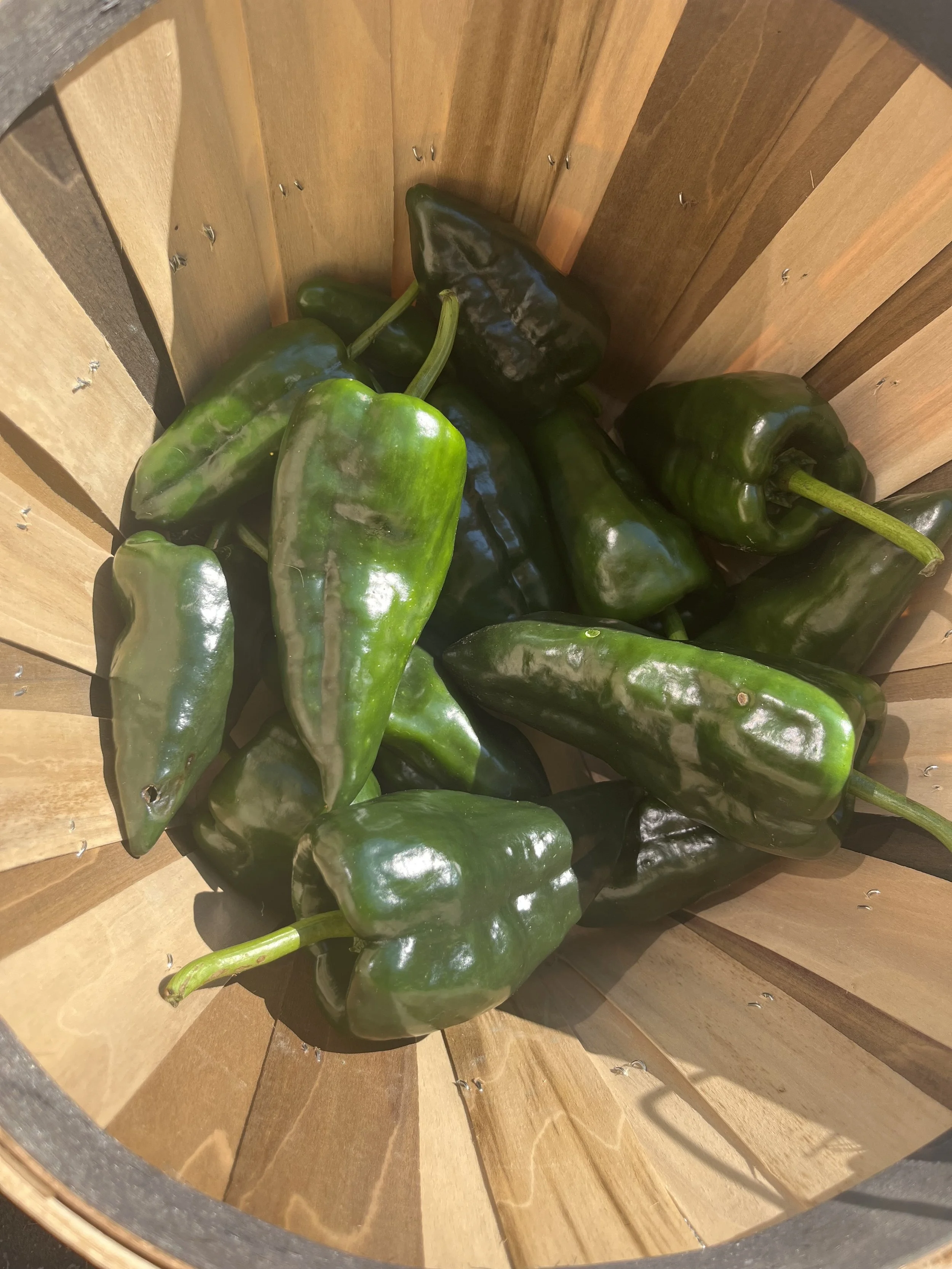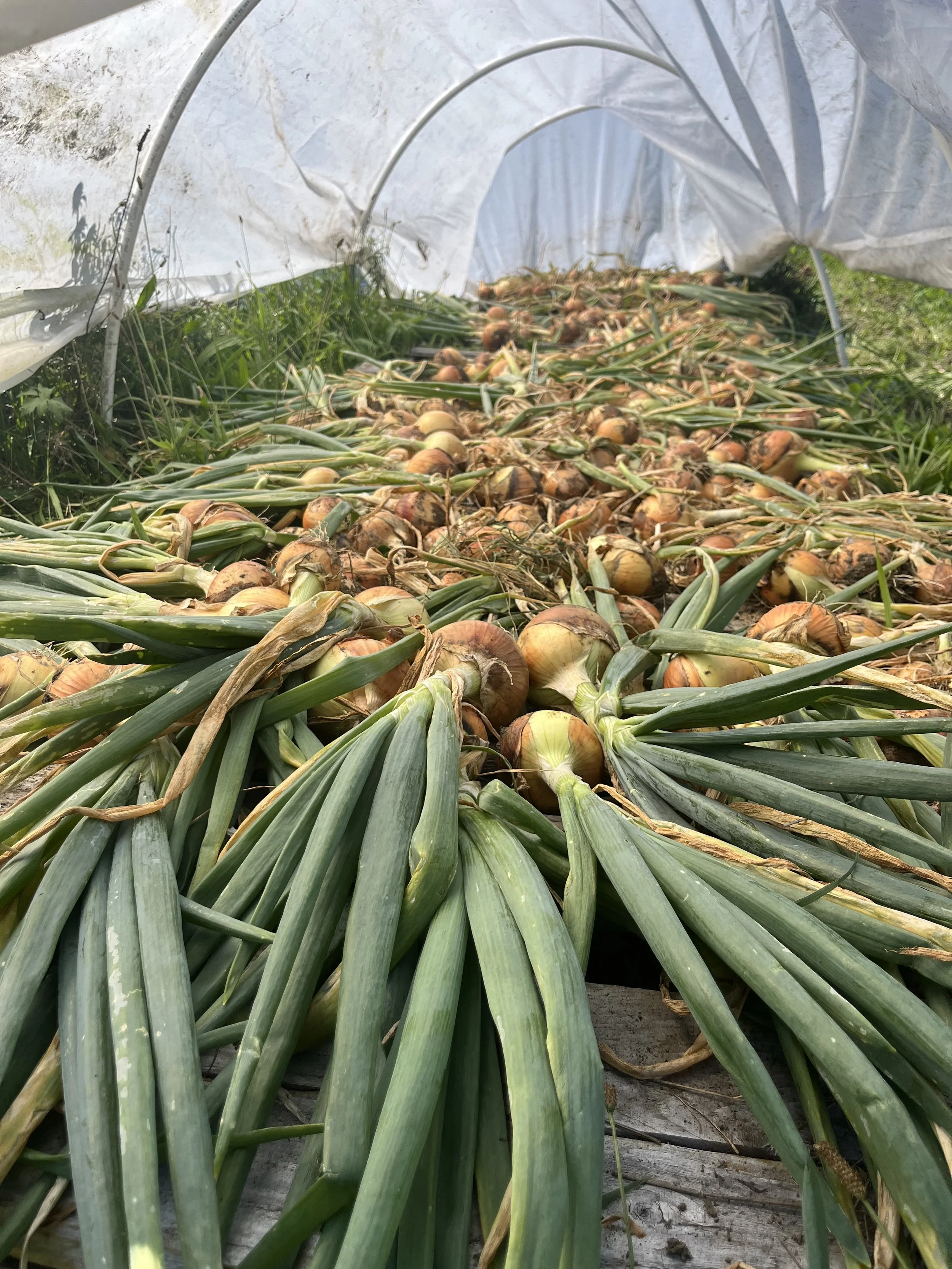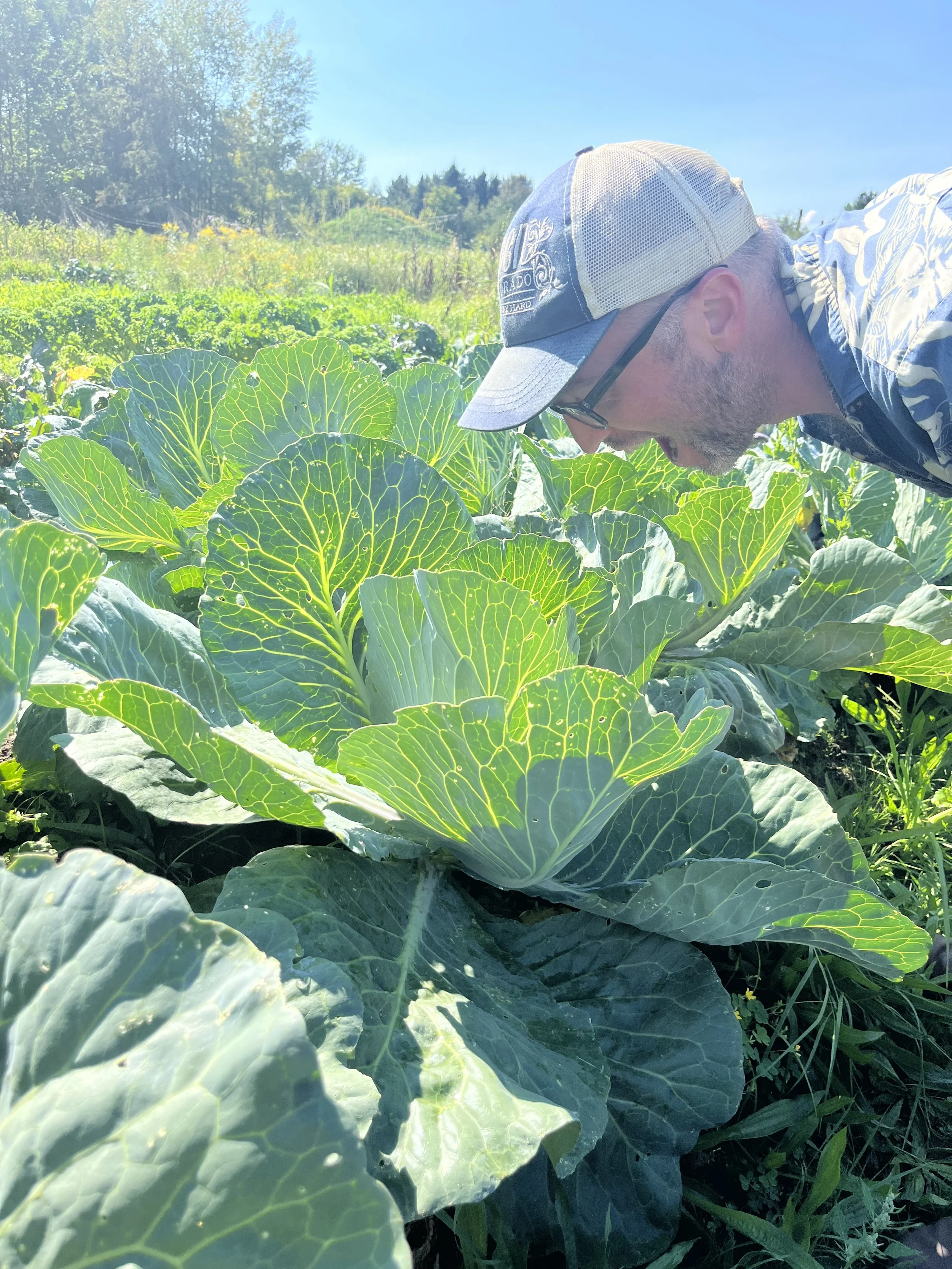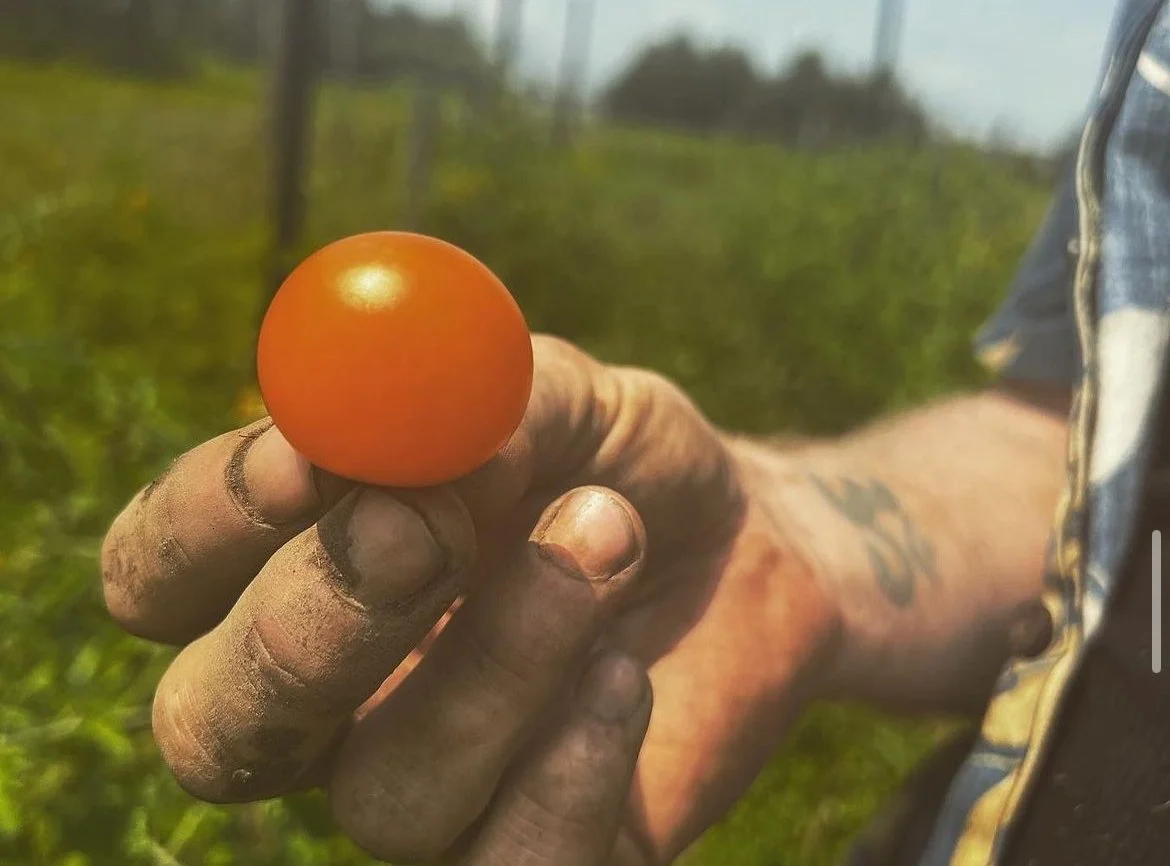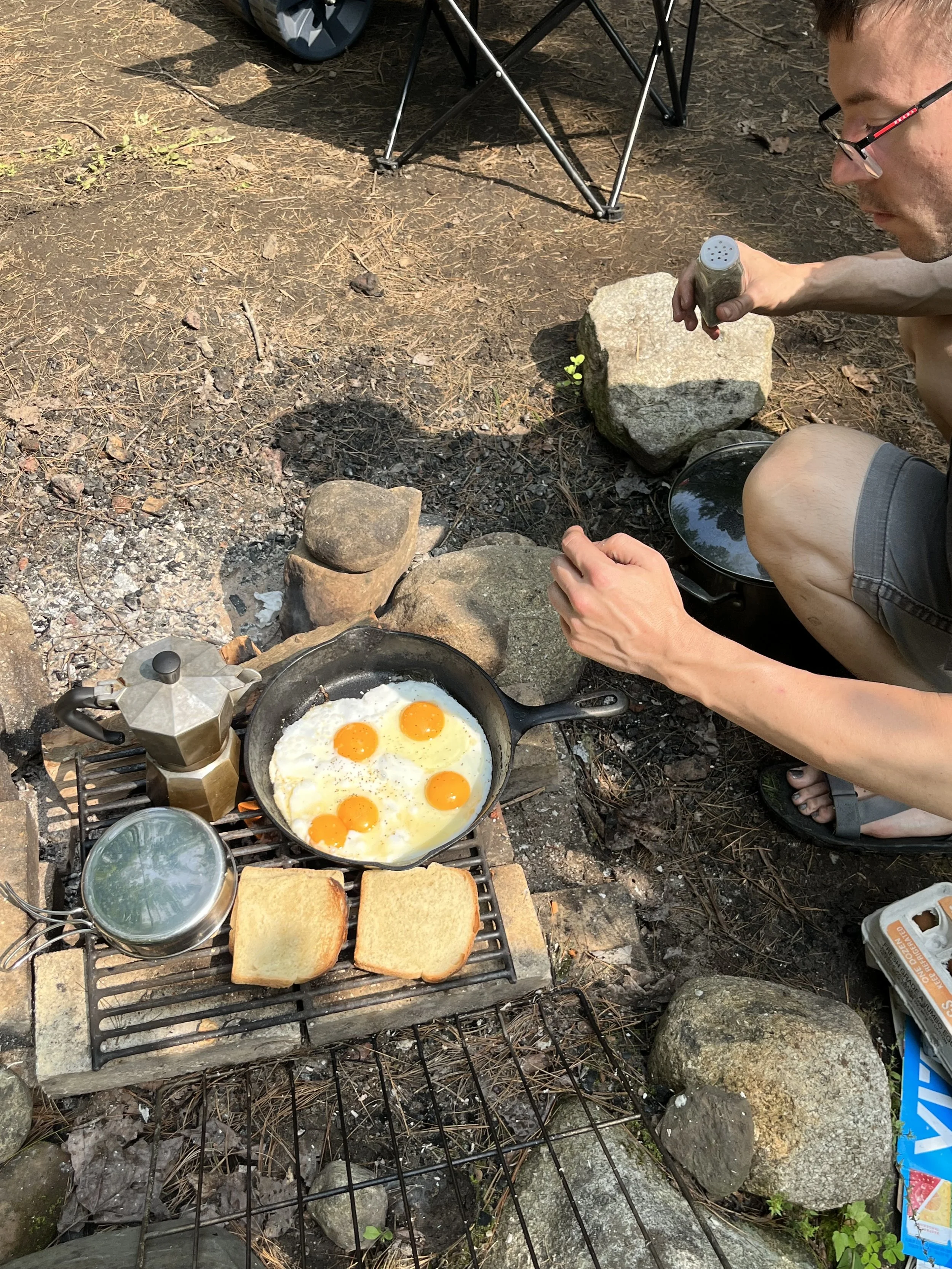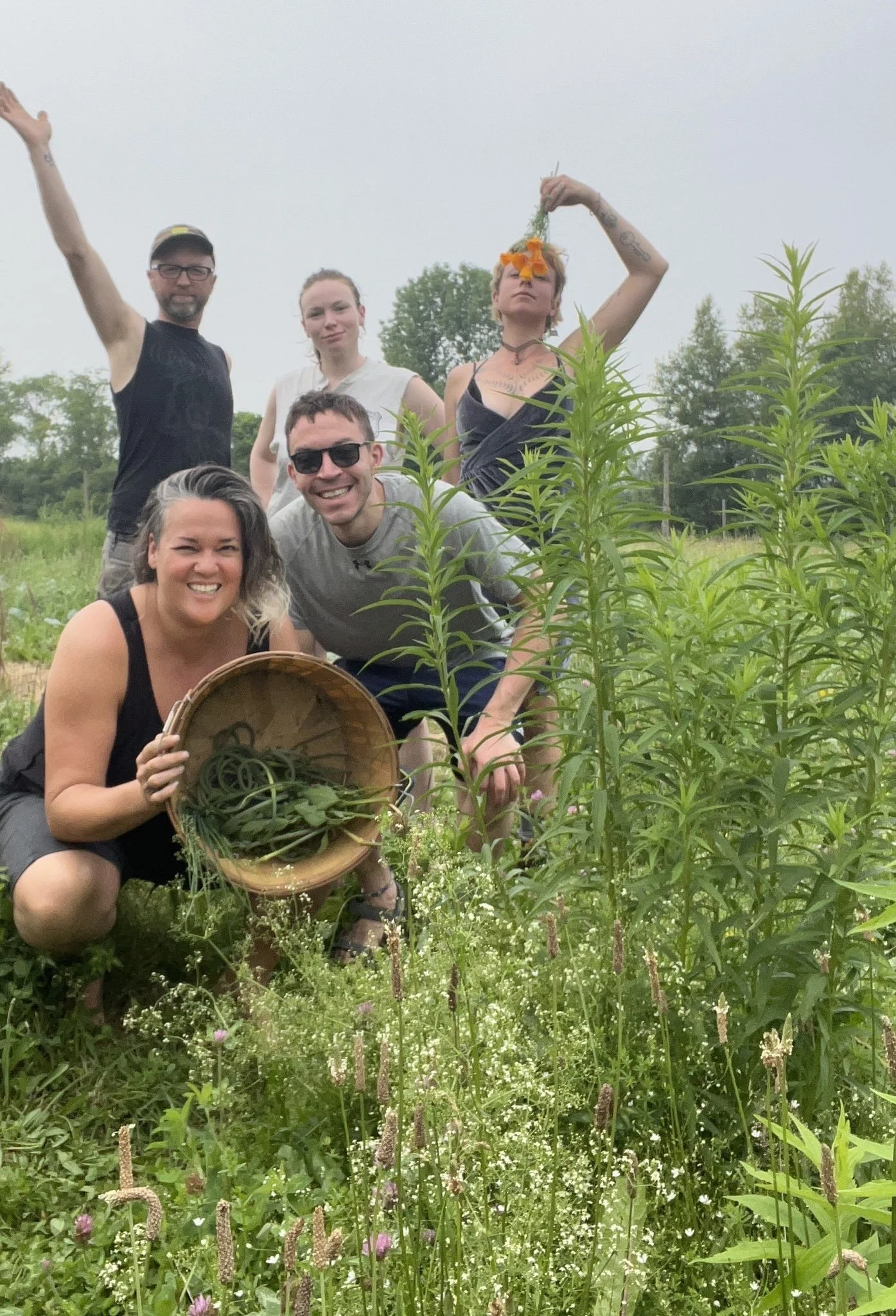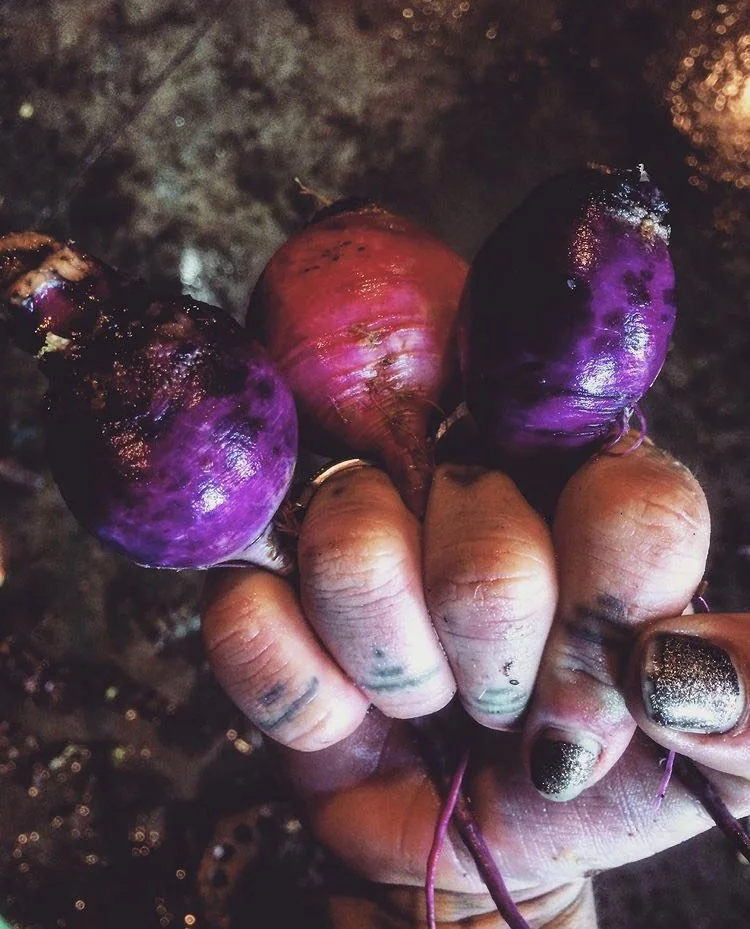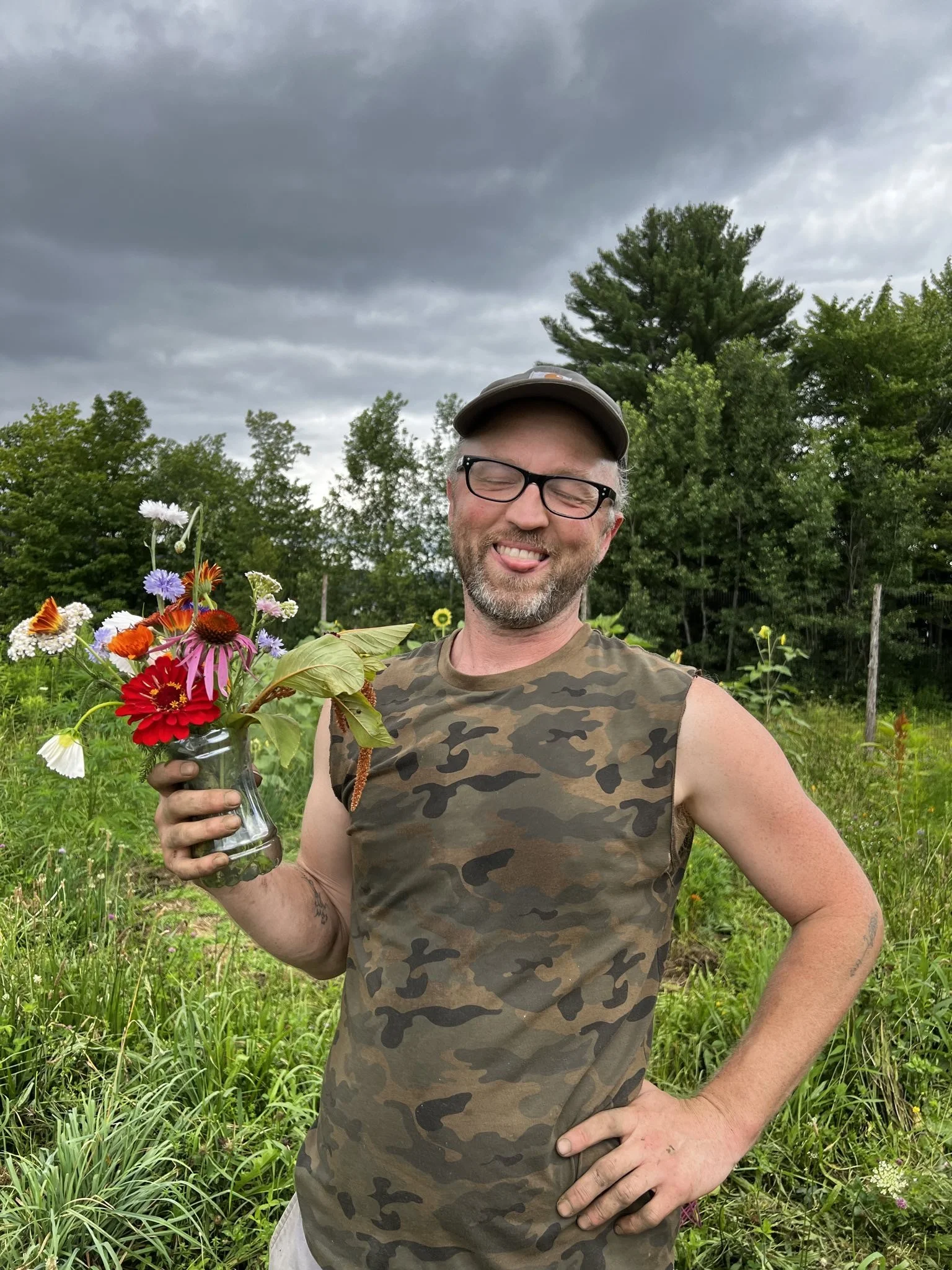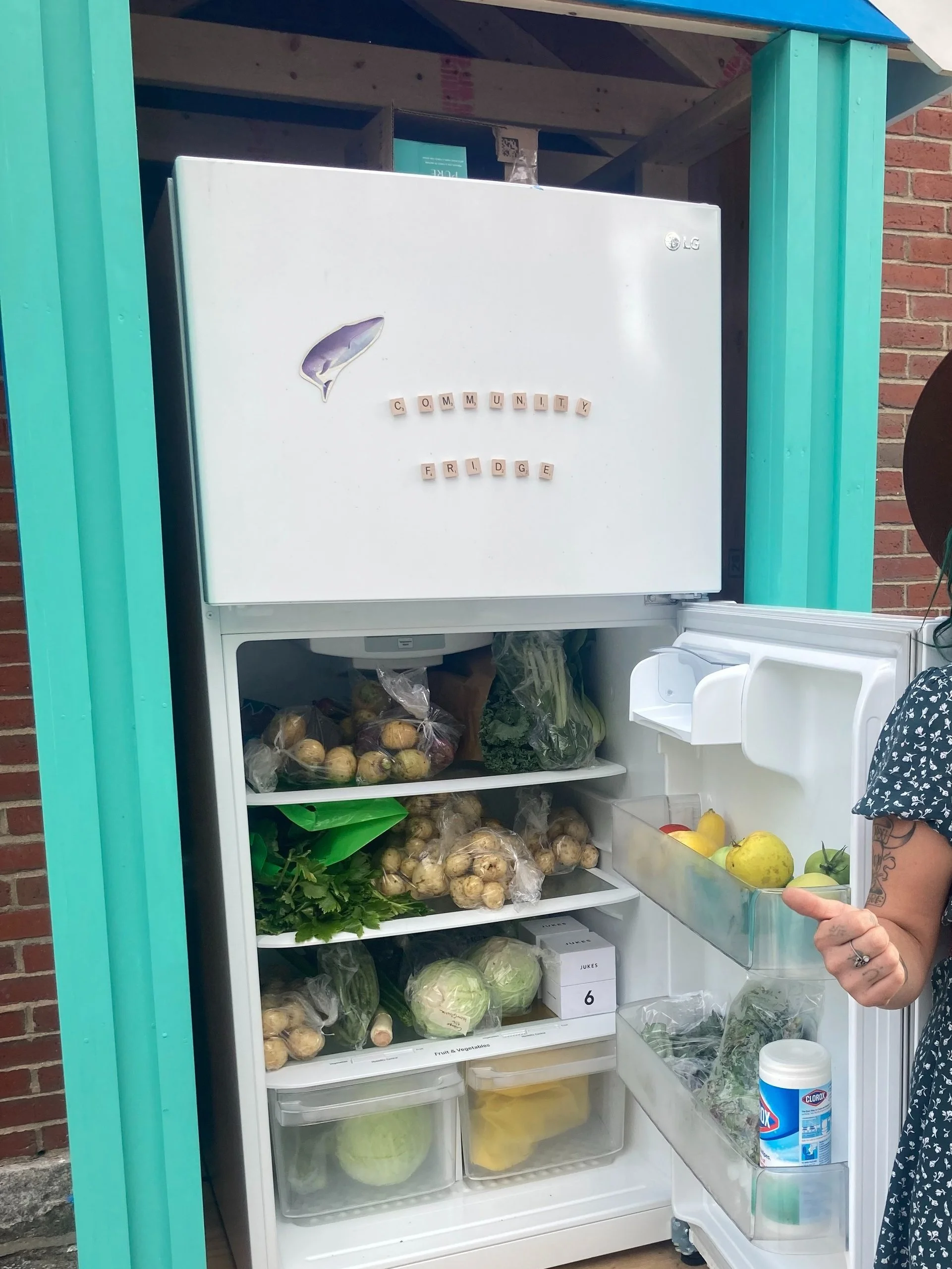Food Justice Program
-
We have been farming on a half acre of donated land for the past four years, and have distributed over 1,250 lbs (as of September 2024) of free, fresh, nutritious food to friends and neighbors in our community who experience food insecurity.
We have recently expanded to another farm in our community. The principle goal of the program is to highlight the intersectionality of sex work stigma and criminality and access to basic necessities. Everyone deserves access to healthy, nutritious food. By working with our friends and sharing food with neighbors, we de-stigmatize sex work and those who engage in it.
-
...both Sex Work and Agricultural Work are ways of accessing the means to survive by selling labor on the market, specifically by using the body to labor.
By illuminating the overlaps in how we perform labor and for what ends, we can see that sex work is essentially work. Sex work and agricultural work are rooted in fulfilling basic human needs, yet those who perform the labor to create the product are made invisible, exploited, and dehumanized. We seek to cultivate autonomy and resiliency in our community by sharing knowledge on how to grow food with volunteers, as well as build relationships with those we share it with.
-
Our agricultural practices are rooted in recognizing that we live in N’dakinna, the traditional ancestral homeland of the Western Abenaki Peoples past and present, and it has endured a history of colonialism that is present in modern agricultural practices today.
In our effort to confront that, we strive to walk as lightly as possible when we engage with farming the land. That means using primarily organic, no-till or minimal-till practices. We integrate organic matter to facilitate soil health. We attempt to listen to and hold space for the other non-human beings that occupy the space we are growing veggies in. We allow for wild spaces to remain undisturbed and naturally weedy to contribute vital habitat for critters residing therein or passing through, and we let wildflowers bloom for bees and other pollinators to share the benefit of our garden.
More about our farmers…
We grow and distribute free vegetables to sex workers, survivors, single-parents, low-income and unhoused folks, and LGBTQIA+ communities throughout central Vermont.
Update: as of Summer 2024, we have expanded to another plot of land in our community to begin growing more fruits and veggies.
We maintain a free open-access community refrigerator located in Montpelier, VT to provide the food we grow to these communities in an easily accessible way 24/7.
Update: as of July 2023, our community refrigerator was damaged and floated away in the Montpelier floods. Please donate to help us re-instate this vital offering to our community.
Update: as of September 2024, our community fridge has been rehomed in collaboration with the Unitarian Church of Montpelier! Hooray for keeping community food systems alive in central Vermont!
We provide opportunities for community members to gain agricultural experience through training in growing crops, food distribution, and land maintenance which are transferable skills outside of the sex industry in order to provide folks more options to sustain themselves long term.
Interested in Volunteering? All those looking to learn about sustainable agricultural practices, any skill level welcome, reach out to our Food Justice Director with your availability and interests at zacharybinks@ishtarcollective.org

